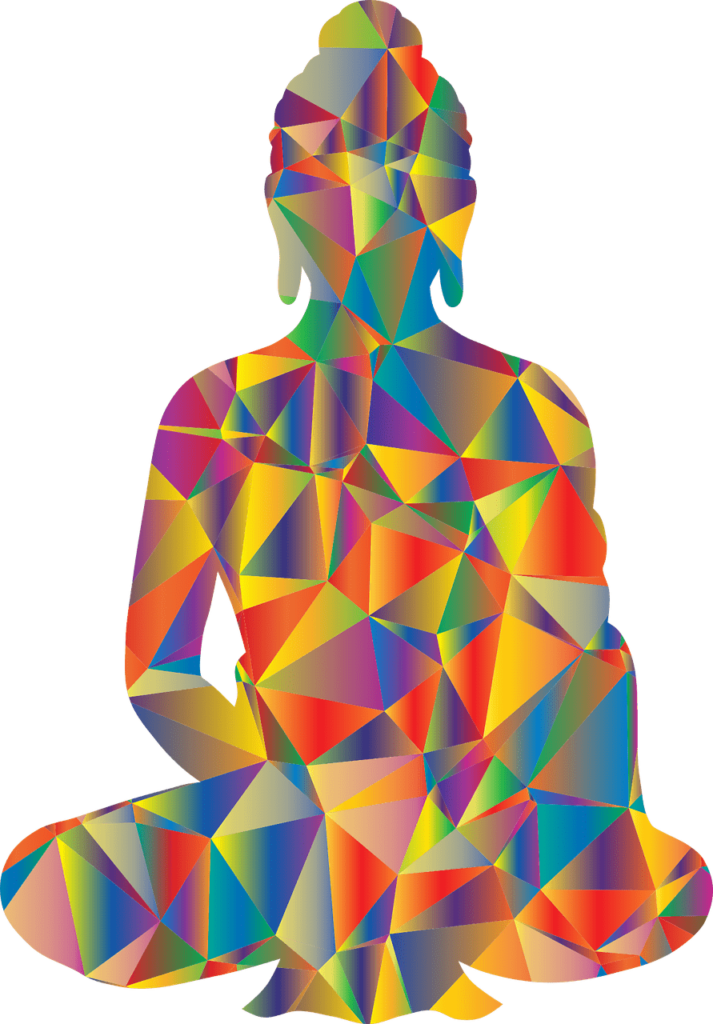Have you ever wondered about the role of Avidya, or ignorance, in the cycle of Samsara, or rebirth, according to yoga philosophy? In this fascinating exploration, we will delve into the depths of these concepts and uncover their interconnectedness. By understanding the role of Avidya in the cycle of Samsara, we can gain a deeper understanding of the path to liberation and ultimate self-realization. Join us as we embark on this enlightening journey of self-discovery.

Introduction to Avidya and Samsara
Definition of Avidya
In the ancient wisdom of yoga philosophy, avidya is often referred to as ignorance or lack of knowledge. Avidya is not simply a lack of information, but rather a fundamental misunderstanding of the true nature of reality. It is a state of misperception where one fails to recognize the interconnectedness of all beings and the ultimate nature of the self.
Explanation of Samsara in Yoga Philosophy
Samsara, on the other hand, refers to the cycle of birth, death, and rebirth that all beings are believed to be bound to. According to yoga philosophy, samsara is a state of existence where one is caught in a perpetual cycle of suffering, driven by the desires and attachments of the mind. The belief in samsara suggests that until one attains liberation or moksha, they will continue to be entangled in this cycle of birth and death.
Avidya as the Root Cause of Samsara
Link between Avidya and the Cycle of Samsara
Avidya is considered to be the root cause of samsara. It is ignorance that traps individuals in this endless cycle of suffering, as they fail to recognize their true nature and the interconnectedness of all things. Avidya blinds us from perceiving the ultimate reality, leading us to mistakenly identify with the transient aspects of the material world.
The Impact of Avidya on the Cycle of Samsara
Avidya perpetuates the cycle of samsara by fueling our desires and attachments. Our ignorance leads us to believe that the pursuit of material possessions, sensory pleasures, and worldly achievements will bring us lasting happiness. However, as long as we remain ignorant of the truth, these pursuits only serve to bind us further to the cycle of birth and death.
Ignorance as the Veil of Reality
Concept of Maya (Illusion) in Yoga Philosophy
Maya, the concept of illusion, further emphasizes the role of avidya in creating a distorted perception of reality. Maya is the veil that covers our understanding, making us perceive the world as separate, fragmented entities, rather than recognizing the underlying unity that connects us all. Avidya veils us from perceiving the true nature of reality, trapping us in a world of illusion.
The Role of Avidya in Perpetuating the Illusion of Samsara
Avidya keeps us locked in the illusion of samsara by blinding us to our true nature. We mistakenly identify with our bodies, minds, and material possessions, believing them to be our true selves. This misidentification leads to suffering, as we constantly search for fulfillment in external sources. Avidya perpetuates the illusion by preventing us from realizing that our true nature is beyond the limitations of the physical world.
Avidya and the Cycle of Karma
Understanding Karma and its Relationship with Avidya
Karma is the law of cause and effect, which states that every action we take has consequences, both in this life and future lives. Avidya influences karma by distorting our perception of right and wrong, leading us to make choices based on ignorance rather than wisdom. Our actions driven by avidya create karmic imprints that bind us further to the cycle of samsara.
How Avidya Influences the Law of Karma
Avidya influences the law of karma by clouding our judgment and causing us to make choices that perpetuate suffering. When we act from a place of ignorance, we are more likely to engage in harmful actions towards ourselves and others. These actions generate negative karma and contribute to the cycle of samsara. Only by overcoming avidya can we break free from this cycle and create positive karmic imprints.

Breaking the Cycle: Role of Vidya (Knowledge)
Introduction to Vidya as the Antidote to Avidya
Vidya, often referred to as knowledge or wisdom, is the antidote to avidya. It is through the cultivation of vidya that we can overcome ignorance and free ourselves from the cycle of samsara. Vidya is not simply intellectual knowledge but a deep understanding of the true nature of ourselves and the world around us.
The Role of Knowledge in Overcoming Ignorance and Samsara
Knowledge plays a crucial role in breaking free from avidya and the cycle of samsara. By acquiring knowledge, we gain a broader perspective and become aware of the interconnectedness of all things. This awareness allows us to see through the illusions perpetuated by avidya and shift our focus from temporary pleasures to the pursuit of lasting fulfillment.
Practices to Overcome Avidya
Meditation as a Tool to Cultivate Awareness and Knowledge
Meditation is a powerful practice that can help cultivate awareness and knowledge, leading to the dissolution of avidya. By quieting the mind and focusing inward, we can transcend our limited perceptions and tap into deeper levels of consciousness. Through regular meditation practice, we can gradually dissolve the veils of ignorance and gain a clearer understanding of ourselves and the world.
Yoga Asanas and Pranayama to Dissolve Ignorance
Yoga asanas and pranayama (breath control) practices are also effective tools in overcoming avidya. Asanas help purify and strengthen the physical body, preparing it for the cultivation of knowledge. Pranayama, on the other hand, helps to balance the energy within the body and enhance mental clarity. By incorporating these practices into our lives, we can gradually dissolve the ignorance that binds us to the cycle of samsara.
Studying Scriptures and Philosophical Texts for Spiritual Awakening
Studying scriptures and philosophical texts is another way to deepen our understanding and overcome avidya. These ancient texts offer profound insights into the nature of reality and provide us with guidance on the path to liberation. By immersing ourselves in the wisdom contained within these texts, we can broaden our perspective, challenge our existing beliefs, and ultimately transcend the limitations of avidya.

Avidya in Daily Life
Recognizing and Acknowledging Ignorance in Everyday Situations
A key step in overcoming avidya is recognizing and acknowledging ignorance in our everyday lives. This involves being honest with ourselves and acknowledging that we may not have all the answers or a complete understanding of reality. By embracing this humility, we open ourselves up to new possibilities and allow space for the acquisition of knowledge and wisdom.
How Avidya Manifests in Relationships, Work, and Personal Development
Avidya manifests in various aspects of our lives, such as relationships, work, and personal development. In relationships, it may lead to misunderstandings, conflicts, and a lack of empathy. In work, avidya may prevent us from seeing the bigger picture or exploring new opportunities. When it comes to personal development, avidya can hinder our growth by limiting our beliefs and preventing us from embracing change.
Effects of Overcoming Avidya
Freedom from the Cycle of Birth and Death
Overcoming avidya is the key to breaking free from the cycle of birth and death. As we gradually dissolve the ignorance that binds us to samsara, we attain liberation from the repetitive cycle of suffering. We realize our true nature, which is beyond the limitations of the physical world, and transcend the cycle of birth and death.
Attaining Self-Realization and Liberation (Moksha)
By overcoming avidya, we attain self-realization and liberation, known as moksha. Self-realization involves recognizing our true nature as pure consciousness, beyond the identifications with the physical body and mind. Liberation, on the other hand, is the ultimate goal of yoga philosophy, representing the freedom from all limitations and the realization of oneness with the divine.
Avidya and the Path of Self-Discovery
The Role of Avidya in the Journey of Self-Exploration
Avidya plays a pivotal role in the journey of self-exploration and self-discovery. It is through the recognition and understanding of our ignorance that we can embark on this transformative path. Avidya serves as a catalyst, prompting us to question our beliefs, challenge our perceptions, and seek deeper truths beyond the realm of the illusion.
Using Ignorance as a Catalyst for Spiritual Growth
Paradoxically, avidya can be seen as a tool for spiritual growth. It is through the acknowledgement of our ignorance that we create the space for growth and learning. By embracing our lack of knowledge, we open ourselves up to new experiences, insights, and the acquisition of wisdom. Avidya, when approached with curiosity and humility, becomes a stepping stone towards spiritual awakening and self-realization.
Conclusion
The Significance of Avidya in the Cycle of Samsara
Avidya plays a central role in the cycle of samsara. It is the root cause of suffering and the veil that prevents us from recognizing our true nature. As long as avidya remains, we will continue to be trapped in the perpetual cycle of birth and death, driven by desires and attachments.
Embracing Knowledge to Break Free from the Shackles of Ignorance
However, through the cultivation of knowledge or vidya, we can overcome avidya and break free from the shackles of ignorance. By embracing practices such as meditation, yoga, and studying spiritual texts, we can dissolve the veils of ignorance, broaden our perspectives, and ultimately attain liberation from the cycle of samsara. May we all embark on this journey of self-discovery and liberation, embracing knowledge as our guiding light.

